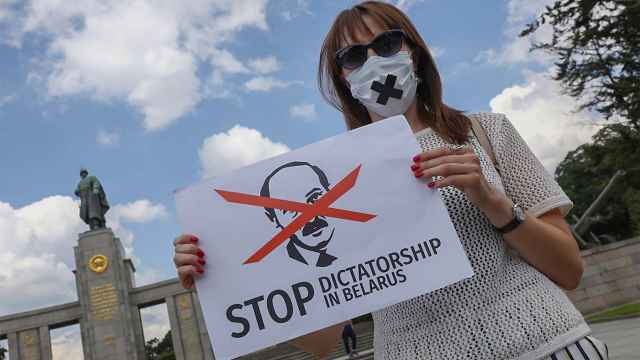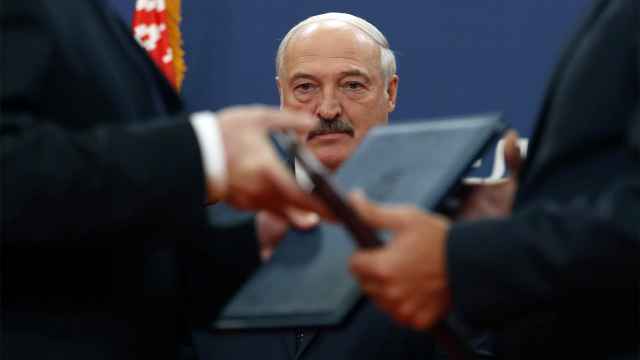Although the Belarusian (ex) president Alexander Lukashenko, who, based on general evidence lost the elections on Aug. 9, has still not stepped down, a change in power seems likely.
Regardless of whether Svetlana Tikhanovskaya, who was supported by most Belarusians, will occupy the post for long or whether new elections will be held, serious changes await the country in the economic sphere.
Lukashenko’s rule has led to many years of stagnation, and the country has fallen behind its neighbors — both those with oil and other resources and those without any resources. It has also led to specialists and talented entrepreneurs leaving the country. What reforms can be implemented swiftly? Which ones is it better to postpone?
The main reform which can and should be carried out quickly is the restoration of a normal entrepreneurial climate. A developed, competitive IT sector has formed in Belarus, but in recent years pressure from the security agencies has made growth impossible. Valery Tsepkalo, one of the founders and the first director of the Belarus Hi-Tech Park, a genuine success story, was first removed from his post, then forced to leave the country under threat of arrest. Several big IT entrepreneurs have also been arrested, and searches have been carried out on the premises of companies — many of which have a global reputation and which are the pride of the Belarusian economy.
Any change in power will include reforms of law-enforcement agencies, from firing and taking to court the criminals who organized and carried out the beating of peaceful citizens on Aug. 10 and 11 to narrowing the powers of security officials and cutting personnel and budgets. If the new government takes decisive action and gets rid of security officials involved in corruption and the persecution of businessmen, it will serve as a firm statement of the intention to rely on entrepreneurs as the main source of growth and development.
It will also give those who left the country, feeling threatened, the opportunity to safely return to Belarus — the results will be visible immediately. Not all of the tens of thousands of Belarusians who have fled from Lukashenko will return, but many will come back.
Nothing is preventing Belarus from repeating the “Israeli miracle” of the 21st century, when an influx of educated immigrants in the previous decade, the development of new technologies allowing remote work and the efforts of the government to create a secure atmosphere formed the foundation for two decades of frenzied growth in IT. The return of citizens who fled from Lukashenko, the opening of new offices in the country by international IT companies, the appearance of foreign investors in IT — these will be the first signs of trust in the new government.
Improving the entrepreneurial climate in Belarus “instantly” means a purge and reform of the security agencies, and this can be done relatively quickly. The new government will need to carry out this purge independently of its economic plans. But here’s the important thing. For deep economic reforms to work, a strong, professional state is needed. It is clear that Belarus needs privatization — state control of enormous enterprises is one of the reasons for the stagnation. For privatization to be a success, for large investors to be able to come to the country, it is essential that their ownership rights are well-protected. But it is no less important that the rights of citizens should be protected.
Law of the land
If a company pays its taxes and follows the law of the land, then it makes no difference who owns it. It doesn’t matter who controls the assets — an international concern, a Russian oligarch, a Chinese state bank — if taxes flow into the budget in the proper volume, and the rights of workers are enshrined by law.
The fear of foreign investors or local oligarchs is that after privatization the state will end up too weak to force companies to pay taxes and submit to regulation. In the 20th century the citizens of developing countries supported nationalization and expropriation, because they felt that foreigners were “calling the tune” — that is, economically speaking, paying too few taxes and not respecting workers’ rights.
The Russian privatization of the early 1990s ultimately increased the efficiency of enterprises and the economy as a whole, but the majority of Russians didn’t feel this — and as a result supported a policy of nationalization. Belarus’ reformers need to take into account the lessons of privatization in Russia and other countries. In reforming the law-enforcement agencies, it needs to be remembered that for successful privatization you need a strong, professional state.
This article was first published by VTimes.
A Message from The Moscow Times:
Dear readers,
We are facing unprecedented challenges. Russia's Prosecutor General's Office has designated The Moscow Times as an "undesirable" organization, criminalizing our work and putting our staff at risk of prosecution. This follows our earlier unjust labeling as a "foreign agent."
These actions are direct attempts to silence independent journalism in Russia. The authorities claim our work "discredits the decisions of the Russian leadership." We see things differently: we strive to provide accurate, unbiased reporting on Russia.
We, the journalists of The Moscow Times, refuse to be silenced. But to continue our work, we need your help.
Your support, no matter how small, makes a world of difference. If you can, please support us monthly starting from just $2. It's quick to set up, and every contribution makes a significant impact.
By supporting The Moscow Times, you're defending open, independent journalism in the face of repression. Thank you for standing with us.
Remind me later.








